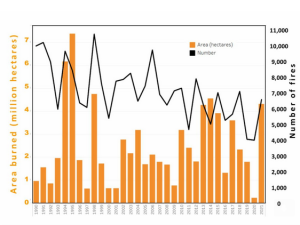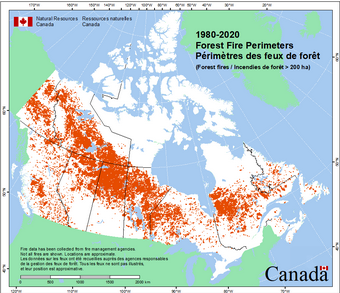If you are living in eastern Canada or the northeast of the United States, you are experiencing quite smoky/hazy skies, the result of fires in Canada.
The fires have spread from northern Alberta eastward into other provinces, including Quebec, generating alarming press coverage. A headline from the Washington Post claimed “‘Unprecedented’ Canadian fires intensified by record heat, climate change.”
Fires in the northern latitudes of Canada are quite different from fires in other parts of the world, including the western United States. The lower latitude fires are often the result of grass and brush that grows lushly in the spring and early summer and then dry in the heat and aridity of late summer and early fall.
Northern fires peak in the spring. For example, May is the peak month in Alberta. That is because in the high latitudes, after long, cold winters, there is plenty of dead fuel from the previous year that dries out in the several weeks between the melting of winter snow and the beginning of spring rains and new growth.
According to Canada’s Department of Natural Resources, fires have been occurring for thousands of years in the boreal forests of eastern Canada – not exactly unprecedented. In addition, they call fire a primary change agent that is as crucial to forest renewal as the sun and rain -perhaps not a calamity either.
It appears that 2023 is on pace to be a year with unusually high numbers of fires. Yet the previous year was one of historically low numbers. The Canadian National Fire Database (2023) provides facts to dispute the idea of climate change-driven increases in fires in Canadian fires. According the CNFD, there has been a significant and continuing decline in the number of fires and no discernible trend in the area burned.

Gregory Whitestone is the Executive Director of the CO2 Coalition. This originally appeared here.
Related – Watch Professor William Happer, Chair of the CO2 Coalition, on Leaders on the Frontier here. (40 minutes)



